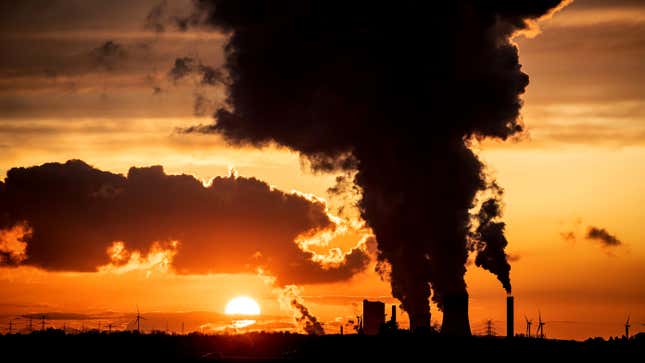
Leading climate scientists are freaking out. That’s a clear takeaway from the latest report commissioned by the United Nations Framework Convention on Climate Change (UNFCCC), the international body that represents the 197 signatories of the Paris Climate Agreement, which was released Friday.
The study, called the Initial NDC Synthesis Report, measures countries’ progress on their Nationally Determined Contributions (NDCs), or their plans to meet the Paris Climate Accord’s goal of keeping global temperature rise “well below” a 2-degree Celsius (3.6-degree Fahrenheit) increase over pre-industrial levels. Those pledges, the authors write, fall far short of the transformative changes needed to stave off the worst impacts of the climate crisis.
Countries’ updated NDCs were due to the UNFCCC by the end of 2020. Most countries missed that deadline, including the world’s top carbon polluters: China, the U.S., and India. But 75 member countries representing about 30% of global emissions did submit new plans, updating their climate goals and boosting their commitments to cut greenhouse gas emissions.
There were good things about these submissions, the authors note. They all reflected more ambitious commitments than previously stated, they nearly all boosted adaptation measures in some way, and many of them seriously grappled with the role that protections for Indigenous communities must play in climate action. But even with those more ambitious pledges, the report says, the world is on a treacherous path.
Combined, the 75 new pledges would only achieve a 1% cut in global greenhouse gas pollution by 2030. But to keep the world below 1.5 degrees Celsius (2.7 degrees Fahrenheit), we’ll need a 45% global reduction. To get there, more countries will have to up their commitments, especially wealthy countries who bear a disproportionate amount of responsibility for global warming.
UN scientists have issued many urgent climate reports before. But in the latest report, the call for action reaches a fever pitch.
“Today’s interim report from the UNFCCC is a red alert for our planet,” UN Secretary General Antonio Guterres said in a statement.
If the world has any chance of meeting the 1.5 degree Celsius goal, he said, 2021 will be a “make or break” year.
Though improving NDCs at the level required to meet the Paris Agreement’s goals will be a historic challenge, it also presents an important opportunity. In December, another UN climate body, the United Nations Environment Program, warned that if carbon emission trends continue, the world could see global temperatures rise by more than 3 degrees Celsius (5.4 degrees Fahrenheit) by the end of this century, but also suggested that green economic recovery plans to handle the financial fallout of the covid-19 pandemic present an opportunity to boost climate commitments. If world leaders wield stimulus packages wisely, they could be used to ramp up the process of decarbonizing the global economy.
In November of this year, Paris Agreement signatories will meet in Glasgow for the climate talks known as COP26, where they are expected to update their NDCs. The report makes it clear that world leaders’ submissions had better be far more ambitious and stringent, or else we’re headed for climate catastrophe.
Before COP26 begins, the UNFCCC says they will release another report, hoping that by then more nations will submit improved action plans. The authors hope that, by then, they’ll have something better to report.
“It’s time for all remaining parties to step up, fulfill what they promised to do under the Paris Agreement and submit their NDCs as soon as possible,” said Patricia Espinosa, Executive Secretary of UN Climate Change, in a statement.